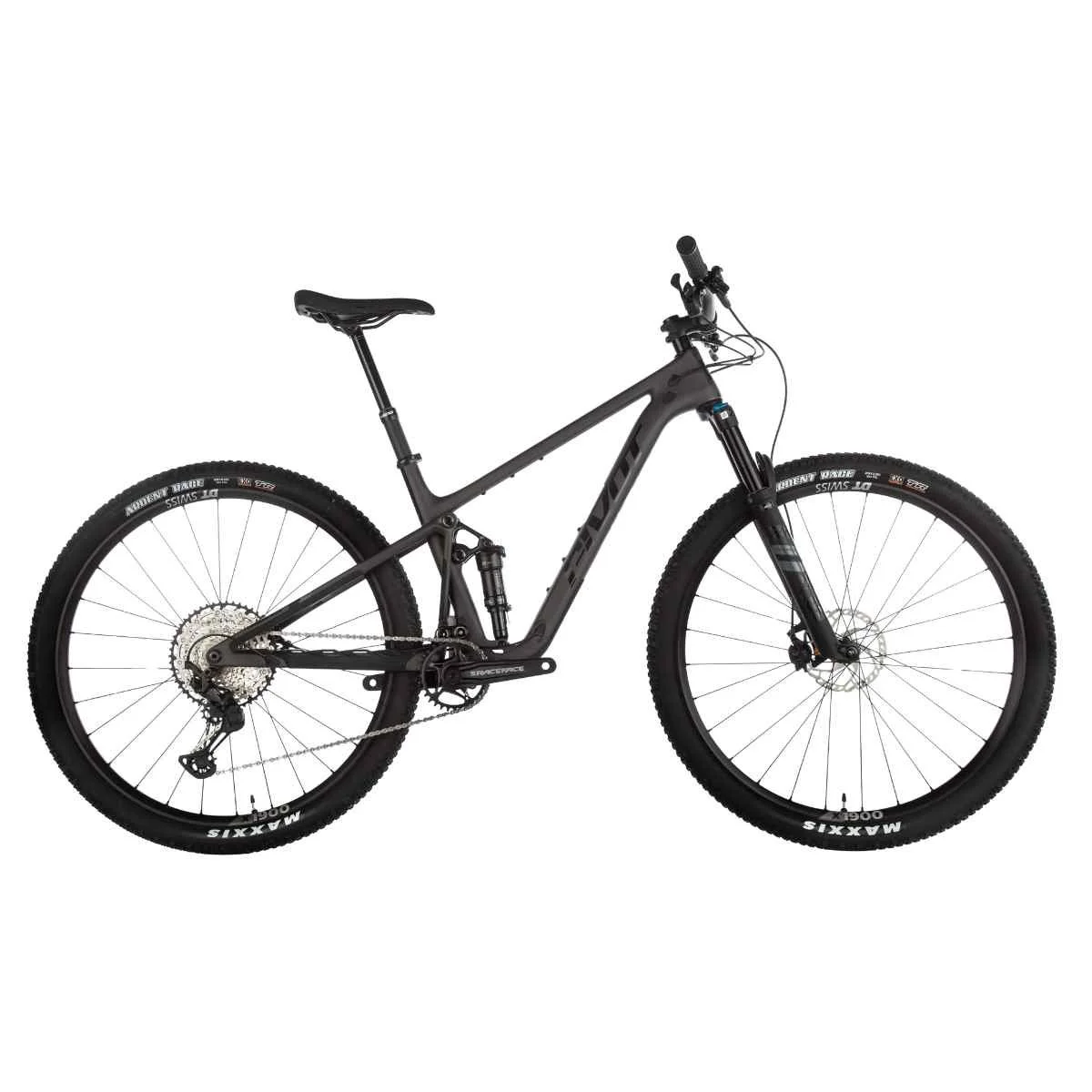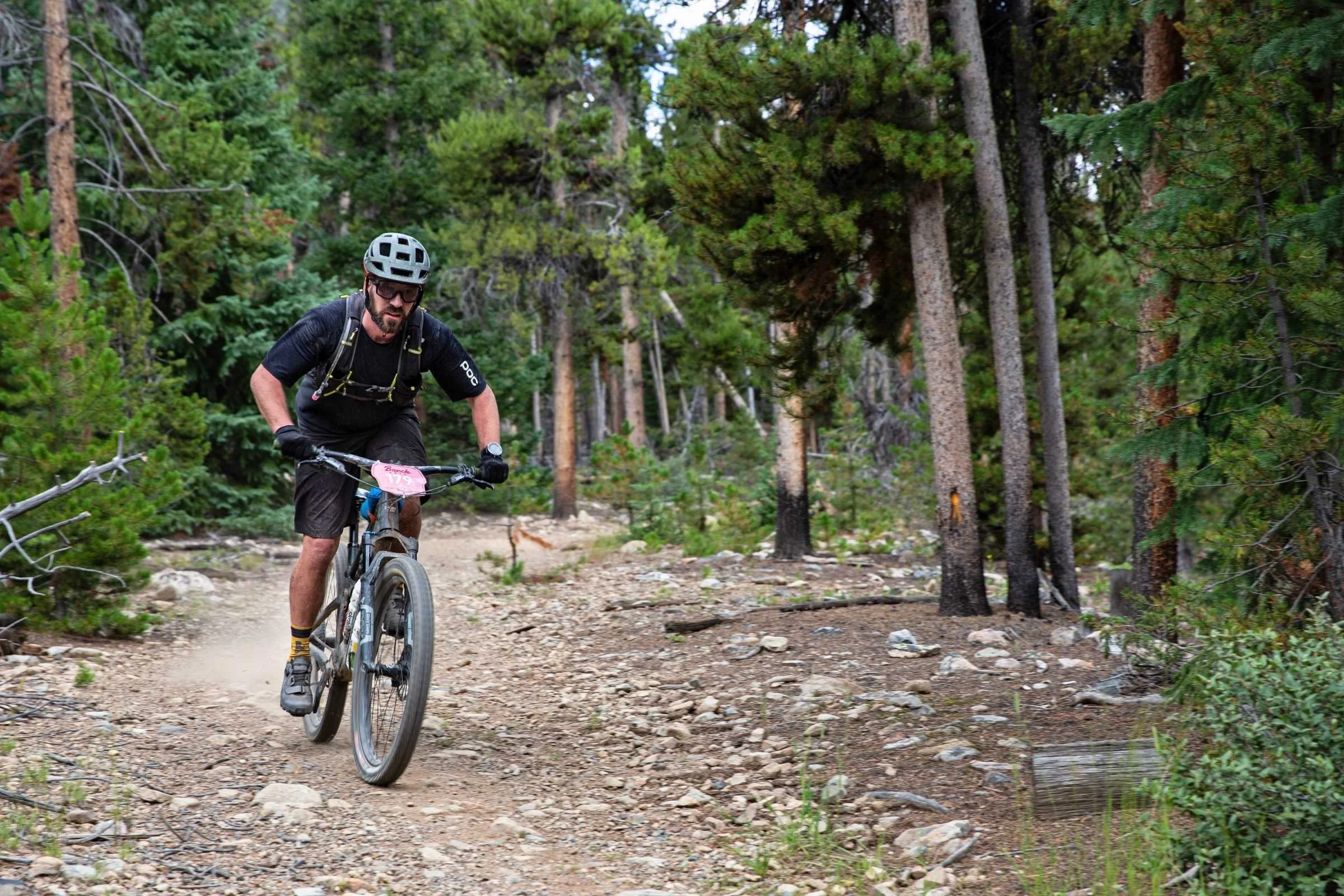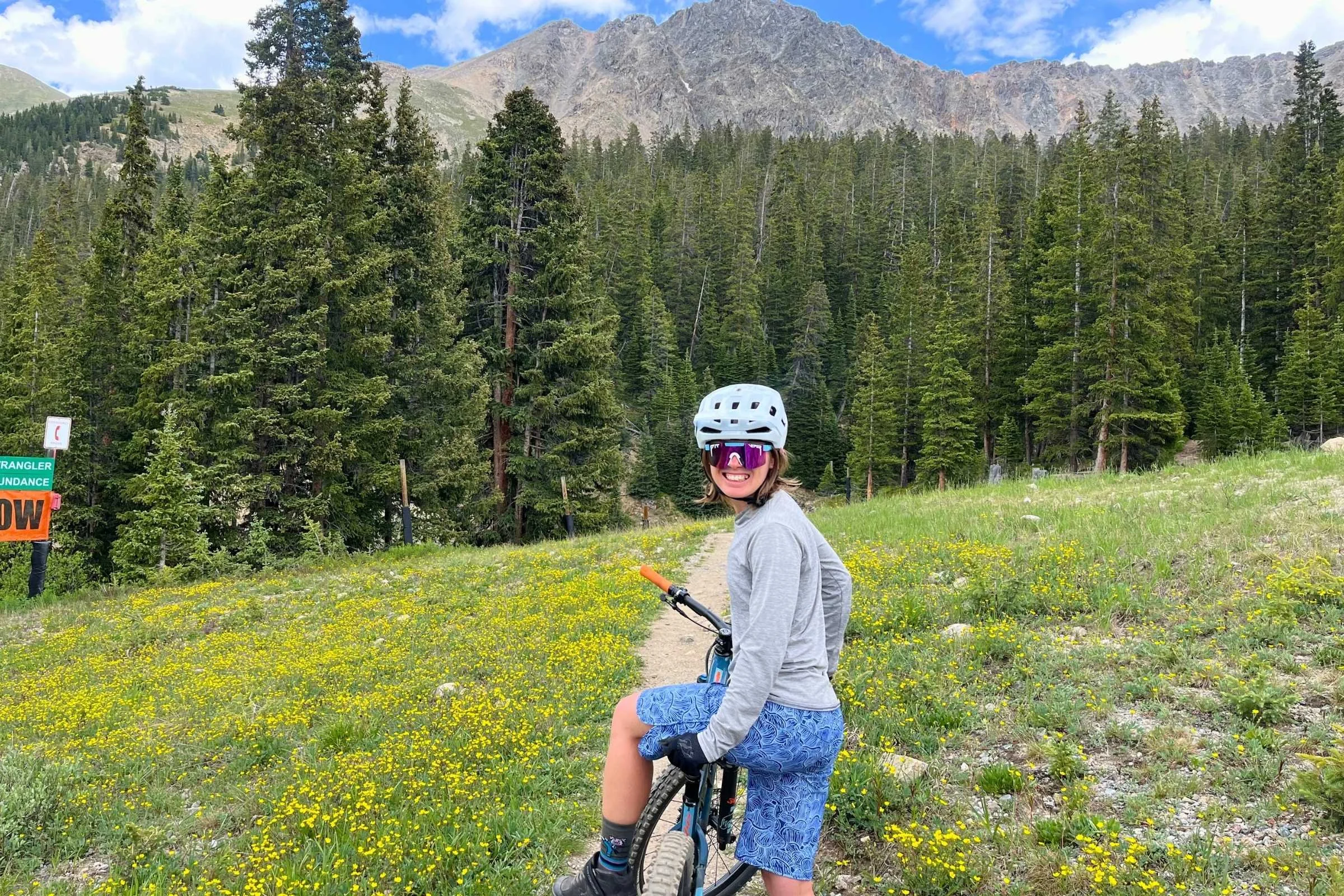Best MTB Brands of 2025
the most popular mountain bike brands, classic brands that made the sport, and emerging brands worth your attention
August 5th, 2025
Home > Learn Skills
Mountain biking is more popular than ever before, and for good reason—who wouldn’t want to cruise down dirt trails on two wheels? Pure freedom and joy.
But mountain biking comes with plenty of gear and lots to unpack when it comes to the bike itself, especially.
There are a lot of brands out there making bikes, and some are better than others, with some being more suited to certain styles and budgets.
Here, we break down some of the most notable brands in the industry—including their history and specialties—so you can have an easier time deciding where to start when looking for a good mountain bike.
We create reader-supported, objective gear reviews that are independently selected by our editors. This story may contain affiliate links, which help fund our website. When you click on the links to purchase gear, we may get a commission, without costing you an extra cent. Thank you for supporting our work and mission of outdoor coverage for every body! Learn more.
Top 12 MTB Brands
Specialized
Specialized is one of the most well-known brands in the bike industry, known for a wide variety of offerings, from affordable cruiser bikes to ultra-premium race bikes for road and mountain. Specialized has a variety of mountain bikes in a wide range of prices and builds. Specialized was founded by Mike Sinyard in 1974. The California-based company has been making quality bikes ever since.
Details
Key bikes: The Rockhopper is a legendary model from the early days of mountain biking, originally a rigid frame that’s now offered as a hardtail that’s great for all-around cross-country riding. But the Stumpjumper is likely the most popular and well-known mountain bike that Specialized offers. It comes in various builds, from alloy frames with lower-end components to top-of-the-line, S-Works carbon frames with premium components. “Stumpy” (as it’s affectionately called) models are available as a 29er or a mullet configuration (29” in the front and 27.5” in the rear).
Features to check out: Specialized has transitioned to unisex sizing for all of its mountain bikes. Sizes go from S1 to S6. Instead of having gender-specific bikes with a smaller range of sizing, Specialized opted to go completely gender-neutral, with a wider range of sizes—a move we think makes a lot of sense in today’s bike industry.
Best for: The Specialized brand is a bit of a jack of all trades. It makes a wide variety of bikes and builds. While it’s not a true budget brand, it has affordable options. Specialized can compete with top-of-the-line premium pro-worthy builds, too, and even has a variety of kids models and sizing options. Most mountain bikers will find something that suits them in the Specialized lineup.
Sustainability and ethics: Specialized works with initiatives like the Responsible Sport Initiative to increase sustainability throughout its supply chain. The brand also supports many efforts in the bike community: it supports the PeopleForBikes nonprofit, and supports conscious trail building within the MTB community through its Soil Searching campaign.
Trek Bikes
Trek is another well-known name in the mountain bike industry. The brand was founded in Wisconsin in the mid 1970s and has since been a household name known for making quality bikes. Trek has a wide variety of offerings and most riders will find something to suit them, though most of their builds do lean toward the more expensive end of the spectrum (while not all their builds are premium, Trek isn’t a budget brand). Trek is also the parent company of other bike brands including Bontrager, which makes helmets and other accessories, and Electra, which makes primarily electric cruiser bikes.
Details
Key bikes: The Fuel is one of Trek’s most notable mountain bikes in recent years and is very popular for all around trail riding. It’s offered in a variety of builds, including models with premium specs and components.
Features to check out: The Fuel EX trail bike comes standard as a 29er, but most models include a link that can be adjusted to transform the bike into a mullet, if that’s your riding preference.
Best for: Trek’s mountain bike offerings are best for all types of riders (from cross-country to downhill) looking for mid-range and premium build bikes. Trek also has sport and mountain bike models and sizes for kids.
Sustainability and ethics: Trek publishes an annual sustainability report which is available to anyone. Trek is working to reduce critical greenhouse gas emissions by 2032 and hopes to source all of its power from renewable energy sources by 2030.
Giant and Liv Bicycles
Giant Bicycles has been a major player since being founded in 1972. In their decades as a business, it’s put forth innovations in suspension and off-road performance. Today, the brand is known for making quality bikes at reasonable prices. Giant’s sister company, Liv, is the women’s branch of the bike brand, making women’s-specific models and builds.
Details
Key bikes: The Stance is a popular model for riders looking for an affordable option for their first full suspension bike. For riders looking for upgraded suspension, the Trance bikes are a great option for an upgrade.
Features to check out: The Trance line of trail bikes (and others in the lineup) uses Giant’s notable Maestro suspension, which is notably responsive and plush while still being very efficient for climbing.
Best for: Riders looking for good full suspension bikes at a budget-conscious price.
Sustainability and ethics: Giant/Liv are supporters of People For Bikes. Additionally, the brands aim to use sustainable materials in their bike builds.
Santa Cruz and Juliana Bicycles
Santa Cruz is a coveted name in the mountain bike industry, known for sleek aesthetics and high-end builds. Sister company Juliana makes women’s models which are very similar to certain Santa Cruz builds, just with more feminine colorways and smaller sizing options. Santa Cruz was founded in—you guessed it—Santa Cruz, CA. Unlike some of the larger heritage brands (Specialized, Trek) which offer everything from downhill mountain bikes to premium road bikes and lower end cruisers, Santa Cruz focuses specifically on mountain bikes, though it has one gravel model and one road model to round things out.
Details
Key bikes: The Bronson is one of Santa Cruz’s most popular and well-loved bikes. This trail bike has plush suspension for aggressive riders.
Features to check out: Santa Cruz has leaned hard into the mullet trend happening in the mountain bike world. From the short-travel full suspension 5010 to the full downhill V10, a large majority of their mountain bikes come as a mullet, and they sure are fun to ride.
Best for: Riders who have plenty of budget for high-end bikes that both ride well and look great.
Sustainability and ethics: Santa Cruz puts a big emphasis on durability in its bike builds, which means you can keep your bike around longer without needing to buy a new one. Juliana partners with PayDirt, an organization that uses funding, volunteering, and support to advocate for equality in biking and to create opportunities to get more people on bikes.
Ibis Cycles
Another brand located in Santa Cruz, Ibis was founded in 1981. It’s known for making high-quality bikes that are super fun to ride, at pretty reasonable prices. Ibis focuses specifically on mountain bike models, with one gravel bike in its lineup.
Details
Key bikes: The Ripmo is one of the brand’s most popular bikes—a trail bike that’s an incredibly fun ride and that’s loved by riders and reviewers alike. The carbon Ripley is another popular model for riders looking for a shorter-travel, full-suspension option.
Features to check out: Ibis now offers both the Ripmo and Ripley in aluminum frame builds (dubbed the Ripmo AF and Ripley AF), which offer a lot of bike at a really reasonable price.
Best for: Riders who want a super fun, quality built mountain bike at a reasonable price.
Sustainability and ethics: While Ibis does not offer a lot of information on sustainability on its website, it does offer a lifetime warranty, which we think is great.
Pivot Cycles
Pivot may not have quite as many decades under their belt as some of the heritage brands on our list—it was founded in 2007 in Tempe, AZ—and has since garnered a hefty following of riders who really love Pivotbikes. Pivot focuses on mountain bikes, with high-quality, premium offerings for die-hard riders.
Details
Key bikes: The Mach 4 is one of the brand’s longest-standing models—a short travel, full-suspension bike that’s precise and nimble.
Features to check out: Pivot is known for its super strict quality control—among the best in the industry.
Best for: Riders who want a premium bike and don’t mind premium prices.
Sustainability and ethics: Pivot is at the forefront of sustainability in the mountain bike industry, with many initiatives in place. It uses plastic-free packaging, and works hard to recycle plastic that comes in through the manufacturing process. They’re also working with the repair shop Carbon Bike Specialists to repair damaged carbon frames—something notoriously challenging—to keep them on the trails and out of landfills.
Yeti Cycles
Yeti may be the brand with something most akin to a cult following in our list. This boutique mountain bike brand makes high-end bikes at high-end prices—that are undeniably fun to ride. Founded in 1985 and based in Colorado, their bright turquoise branding has been an unmistakable hallmark of their bikes since the early 90s. Today, Yeti makes some of the most coveted trail bikes on the market—and premium trail bikes are their specialty.
Details
Key bikes: Bikes from the SB line—like the SB120, SB140, and SB160—are some of their most popular models. Build options fall towards the premium end of the spectrum for all of these models.
Features to check out: The SB models of bikes use Yeti’s Switch Infinity tech in their rear suspension. This is an extra part near the bottom bracket that adds smoothness and dampening to the rear shock.
Best for: Riders who want well-built, fun to ride, premium trail bikes and don’t mind premium prices.
Sustainability and ethics: Yeti is a supporter of Rowdy Goudy, who works to get more women of color out riding bikes.
Cannondale
East Coast brand Cannondale was founded in the early ‘70s and has remained a staple in the industry since. Like other heritage bike brands on this list, Cannondale has a wide offering of bikes, from high-end road race bikes to trail mountain bikes, and more.
Details
Key bikes: The Habit is a popular trail bike for the brand, known for having well-rounded performance and a fun ride at a moderate price point.
Features to check out: Cannondale is known (among other things) for its unique “Lefty” fork suspension, which is used on a few of the cross-country models, including the high-end Scalpel Lefty, which pro riders like Lachlan Morton have used to win major XC races. The odd-looking asymmetrical fork is one-sided to save weight without sacrificing suspension.
Best for: Riders who want well-rounded bikes at mid range or high end prices.
Sustainability and ethics: Cannondale has supported climate efforts and lobbied in DC with organizations like Protect our Winters to help fight climate change.
Canyon Bicycles
Based in Germany, Canyon is a direct-to-consumer brand that offers a wide range of bikes at fairly reasonable prices. This brand isn’t steeped in as much U.S.-based mountain bike history as many of the other heritage brands here, but Canyon offers great builds for the money. The downside is that, because it's only consumer-direct, you can’t go through a local shop to purchase a bike, and will have to build it yourself or hire someone to do so.
Details
Key bikes: The Spectral is Canyon’s all-around full suspension trail bike that’s great for a wide variety of riders.
Features to check out: One of the key aspects of Canyon bikes is that you can get pretty good build specs for the money. While Canyon isn’t necessarily a budget brand, the bikes do offer a lot of bang for your buck.
Best for: Riders who don’t mind building their own bike, and who want a high end build at a good price.
Sustainability and ethics: Canyon is actively working to lower its carbon footprint and use more sustainable materials through its sustainability initiatives. They work with the Pack4Good initiative to use responsible packaging for shipping their bikes.
Norco
Born in the Pacific Northwest in the mountain biking mecca of British Columbia, Norco has been making bikes since the ‘60s. It was one of the frontrunners for making freeride bikes as mountain biking became more popular in the ‘90s. Today, Norco makes a wide range of mountain bikes with trail bikes being its forte.
Details
Key bikes: The Optic is one of Norco’s most popular bikes in its current lineup, as a shorter travel bike that’s lightweight but still plush, precise, and fun to ride.
Features to check out: The Optic bike is a unique design in that it’s a high pivot full suspension bike, but low travel, particularly in the rear with 125mm, but with a front travel of 140mm. This is a bit of a standout from most other trail bikes, and something to consider if you’re in the market.
Best for: Riders who want uniquely designed bikes with great all-around trail performance.
Sustainability and ethics: Norco does not list any sustainability initiatives on their website.
Kona
Kona is another brand with Northwest roots. Founded in the ‘80s in British Columbia, Canada, it’s now based in Washington state and makes bikes for the trails. The independently owned company primarily makes mountain bikes, with a few other offerings in its lineup.
Details
Key bikes: While the Hei-Hei is one of the brand’s oldest and longest-standing models, the Process is one of the most popular Kona bikes for fun on singletrack. It’s a mid-travel trail bike that’s a lot of fun to ride—which is a heavy emphasis for the brand.
Features to check out: The Process now comes with a flip chip, so you can switch from a 29-inch wheel base to a mullet if you like to roll fast in the front and stay nimble and party in the back.
Best for: Trail riders who want a fun, well-built bike without the ultra premium price tag.
Sustainability and ethics: Kona bikes are shipped to dealers with mostly recyclable cardboard packaging and very little plastic.
Marin
Another brand that’s been around since the breakthrough of mountain biking in the ‘80s, Marin is not a top-of-the-line competitor, but a household name nonetheless. The California-based brand is known for making quality bikes at reasonable prices, and is a great option for riders looking for a solid bike on a budget.
Details
Key bikes: The Rift is a solid all-around trail bike that’s offered in a handful of build options. The bike comes with an aluminum frame, which helps keep it at an affordable price point even with higher build models.
Features to check out: Most Marin bikes are made with aluminum frames. While carbon frames are great, they're also expensive. Aluminium frames are more affordable and often easier to maintain and repair. That makes Marin bikes a great option for budget-conscious riders.
Best for: Riders who want a quality bike on a budget, and don’t prioritize carbon frame options.
Sustainability and ethics: Marin’s Green Bear initiative keeps the brand working towards sustainability goals, including using recyclable packaging with less plastic, and working to recycle e-bike batteries.
FAQ
Should I stick with the same MTB brand?
While brand loyalty can be a good thing for getting to know a product, it’s not necessary at all. Be sure to research what type of bike you want and what will best suit your riding style and budget before buying. Talking to a reputable shop can be very helpful for this, as can demoing different bikes to see what you like. In the end, the specific brand you land on doesn’t matter as much, so long as it’s a reputable brand known for quality builds.
What makes a mountain bike brand stand out?
MTB brands that stand out are often ones that make quality builds with solid components. A mountain bike is a big purchase that will likely get a lot of hard use, so emphasizing quality is important. Other factors include innovation. For mountain bikes, that often is especially true for innovation in the world of suspension. The top brands are often combining top-quality builds with cool tech and innovations. But, a brand can also stand out for value.
Types of mountain bikes and who they’re best for
There are many types of mountain bikes out there today, and the specs and features can vary greatly. Knowing which type suits you best will help you pick the right bike for you.
Cross-Country and Hardtail mountain bikes
Cross-Country (XC) bikes are generally made with less travel in the suspension overall (so they’re not as damp or plush as high-travel downhill bikes) and they’re made for mellower trails overall. XC bikes tend to focus more on weight savings and climbing performance, and therefore are often found in hardtail configurations, which means there is no rear suspension. These bikes are great for folks who enjoy mellower trails or enjoy climbing and want an efficient bike. Hardtail bikes can also offer great value.
Trail bikes
Trail bikes (sometimes referred to as “down country” bikes) are great all-arounders. They’re the Swiss army knives of the MTB world. Trail bikes are almost always full suspension and tend to have a mid-range travel, sometimes as low as 120mm or up to 160mm, but typically around the 130-150mm range. Trail bikes are great for a wide variety of riders. They tend to be heavier than XC bikes, but handle rough terrain and fast downhills better.
Enduro bikes
Enduro bikes are essentially a blend of a trail bike and a downhill bike. They have more travel—think 160mm or more—but are still capable climbers. If you’re in it for the downhill but still have to pedal often to get there, an enduro bike may be a good choice for you.
Downhill bikes
Downhill bikes are gravity-oriented through and through. These bikes don’t climb well and aren't really meant to be pedaled uphill. Instead, they have loads of plush suspension to absorb impacts on rowdy downhill trails. If you ride almost exclusively at bike parks with lift service access, this is a good option.
What to look for in a good MTB brand
First and foremost, you should consider a brand’s quality control. Your bike will be put through the paces on the trail and you want it to hold up.
Consider brands with good reputation and high-quality construction.
You’ll also want to consider what sort of builds and frame materials a brand offers. If you want an affordable bike, look for brands that have a lot of aluminum frame options—that’s one of the best ways to save on a good bike. But if you’re looking for the lightest and fastest, you’ll want to seek out a brand using high-end components in at least some of their builds.
It’s worth noting that while these are the best MTB brands for building bikes and hardware, there are other MTB brands that are dedicated to bike apparel, including MTB jerseys and MTB shorts.
Sustainability and innovation in MTB design
Mountain biking has come a long way since its birth decades ago. From rigid frame rigs to the nimble full suspension bikes we have today, there’s been a lot of change in geometry, suspension, and just about everything else.
Riding bikes, of course, is inherently more sustainable than using a car to get from A-B, but mountain bikes are more for play than for transportation. And in today’s world where the climate is spiraling, bike brands are having to put forth extra effort towards sustainable business practices if we want to keep mountain biking alive—we need trails and public land for that, after all.
Now, many bike companies are working to reduce waste in their packaging, minimize their carbon footprint in production, and invest in the bike community to keep the industry sustainable for future generations.
Fun facts about MTB history and brand culture
Mountain biking has, since its inception, always been a little counter culture, especially in the world of bikes. Whereas road cyclists don skin-tight lycra and shave their legs, mountain bikers are (typically) the hairy-legged, rowdy two-wheelers who love good dirt more than a pristine tarmac.
While people have been pedaling off the pavement since bikes have been around, mountain biking in its true form became popularized starting in the 1970s and really took off in the ‘90s. Now, it’s more popular than ever with a wide range of disciplines from XC racing to freeride.
About the author / Why you should trust us
A true mountain dweller, Stasia Stockwell feels far more at home on a high alpine ridge than a busy city street. She writes primarily in the outdoor and adventure travel realm, focusing on destination content and gear reviews that are intriguing and informative for newcomers and experts alike.
Stasia is an avid mountain biker and has been riding on two wheels since she was a kid on the trails of northern Utah. She now spends her summers logging as much pedal time as possible around her home in Breckenridge, Colorado, and beyond.
As a freelance writer and gear tester, Stasia and Treeline Review are not sponsored, an ambassador, or an employee of any companies mentioned here. This review is unbiased, and we do this to help you find the best product for the best price. Treeline Review doesn’t accept sponsored content, native advertising, or paid reviews.
More of her work and adventures can be found on her website.
To see all Stasia’s Treeline articles, see her author profile.
























